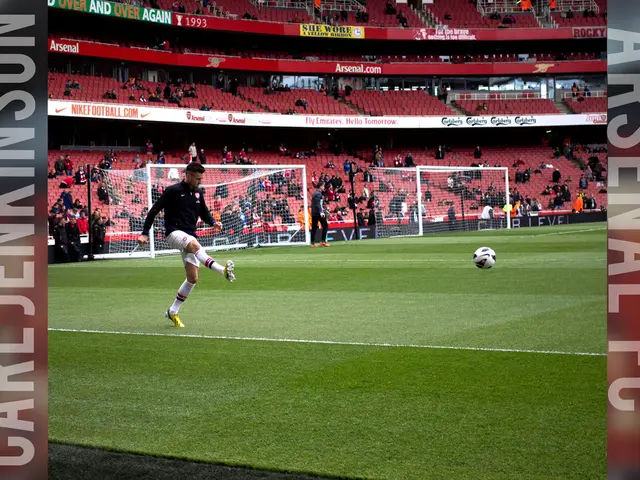Shifting Gears: Union's Promising Push for Economic Relief - SPD's Focus on Pensions and Infrastructure Investments
The Berlin Buzz
Political factions initiate economic drive
Following the failed vote of confidence on Federal Chancellor Olaf Scholz, Germany's political landscape is bracing for the upcoming election in February. All leading contenders are painting this election as pivotal, setting the stage for a significant policy shift. The Union, led by CDU and CSU's Friedrich Merz and Markus Söder, has announced ambitious plans to overhaul Germany's economy should they secure a win. While boosting the economy through corporate tax reform is Merz's focus, Söder aims to appeal to voters with a stricter immigration policy. In stark contrast, the Social Democrats are zeroing in on promises in the realm of pension policy.
"A strong economy lays the foundation for everything," Merz declared, promising relief for the working middle class, higher tax-free income opportunities in retirement, and the abolition of the current form of citizen's income. To encourage businesses, CDU/CSU propose reducing corporate taxes to a maximum of 25% of profits, with potential savings of 50 billion euros each from cutting back on refugee policy and the citizen's income. However, Merz admitted that private capital would be needed to fund infrastructure without sacrificing profits.
The Greens and SPD, on the other hand, are advocating for a "Germany Fund," with Scholz earmarking a fund of 100 billion euros. Habeck, the Green Party's chancellor candidate, estimated that mid-three-digit billions would be required for infrastructure investments over the next decade. Financing such ventures through budget savings alone is illusory, according to the economics minister.
In addition to collaborating with the Greens to finance infrastructure investments through a "Germany Fund," the SPD is promising an innovation premium for companies and a "Made in Germany" bonus, reminiscent of the "Inflation Reduction Act" in the USA. To inject more funds into their programs, both parties are planning to reform the debt brake.
The FDP, with Christian Lindner as its top candidate for the federal election, has yet to publish a full program. However, the FDP has hinted at proposals to alleviate the top tax rate, which would only affect an annual income of 96,600 euros in the future. They also propose lowering corporate tax burdens below 25% and continuing their support for a stock pension.
The SPD remains committed to the "Generations Capital" project, currently a pet project of the traffic light coalition, and aims to maintain the pension level at 48%. They also aspire to cap the long-term care insurance contribution at 1,000 euros. According to Scholz, the minimum wage should rise to 15 euros per hour by 2026, benefiting 7 million employees.
According to calculations by the Institute of the German Economy (IW), citizens and businesses would be relieved by around 90 billion euros if the Union manages to enforce its proposals. The FDP estimates this figure to be as high as 138 billion euros. Meanwhile, the relief measures proposed by the Greens (48 billion euros) and especially the SPD (30 billion euros) are somewhat lower. The IW estimates that the relief for businesses would be roughly comparable for both the Union and the Social Democrats, at 20 billion euros each.
Economic associations have praised the Union's proposed plans for their potential to stimulate the economy, highlighting the need for business-friendly policies, manufacturing support, and regulatory reform. However, concerns about the financing of these proposals have been raised. The SPD and Greens' state steering policies are seen as further exacerbating social divides.
- Friedrich Merz, the Union's leader, declared a strong economy as the foundation for everything, promising economic relief for the working middle class, higher tax-free income opportunities in retirement, and the abolition of the current form of citizen's income.
- Clashing with the Union's proposals, the SPD advocates for a "Germany Fund," earmarking a fund of 100 billion euros, and promises an innovation premium for companies and a "Made in Germany" bonus.
- To inject more funds into their programs, both the SPD and Greens are planning to reform the debt brake, with the SPD maintaining the pension level at 48%.
- The Institute of the German Economy (IW) estimates that citizens and businesses would be relieved by around 90 billion euros if the Union manages to enforce its proposals, while the SPD's relief measures are somewhat lower at 30 billion euros.








